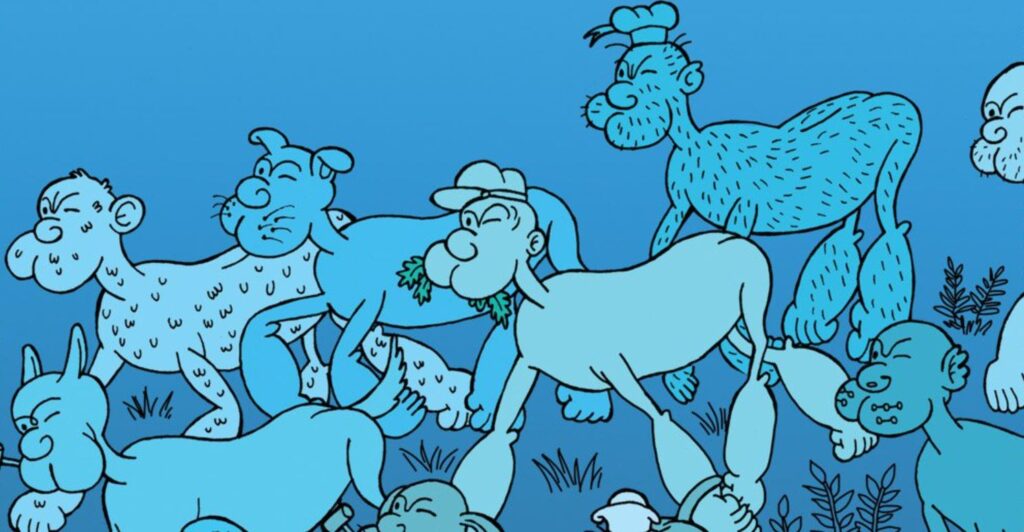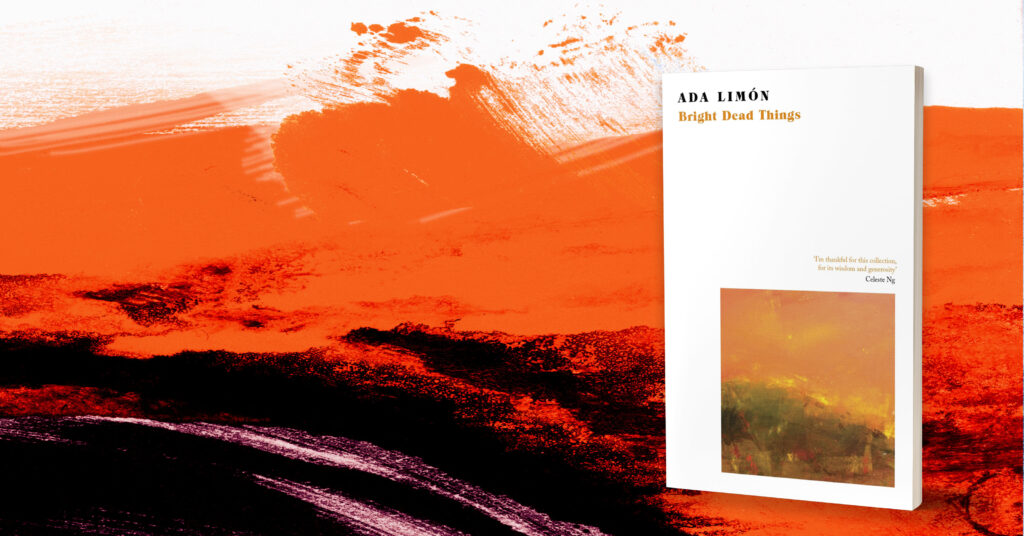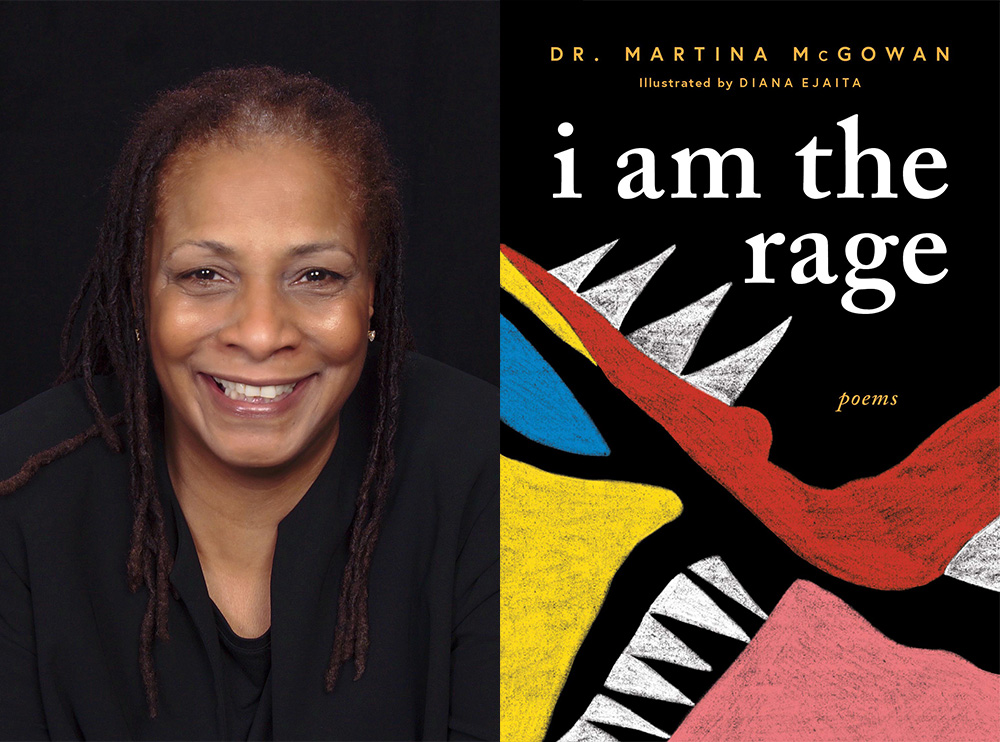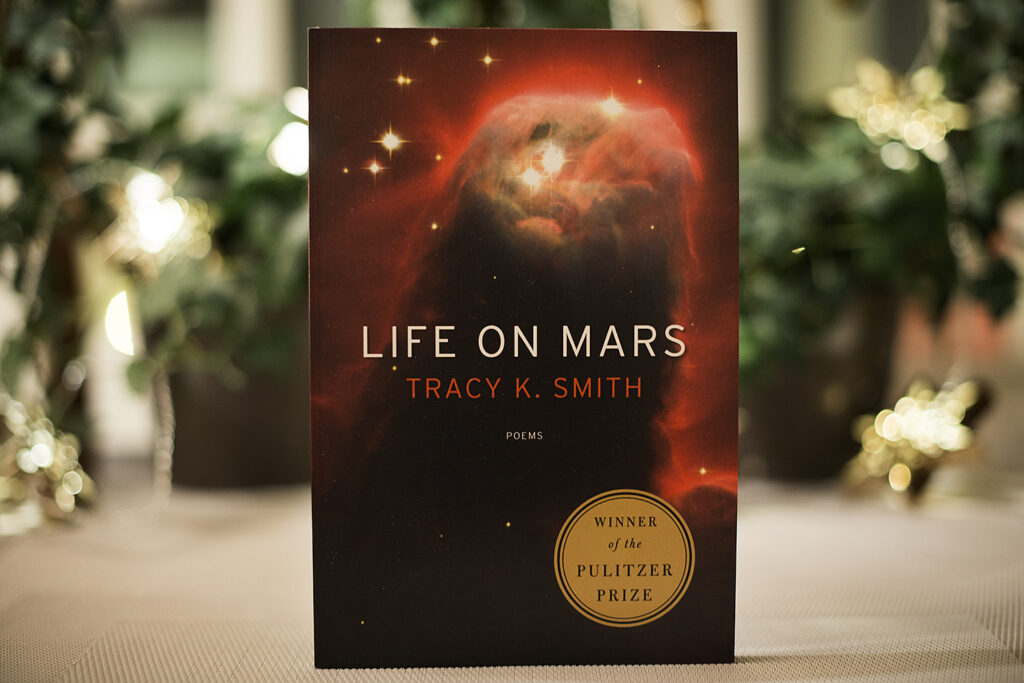Top 10 Must-Read Poetry Collections Written by Modern Women Poets That Are Both Gorgeous and Essential Reading: Women have been using poetry as a means of expression for centuries, and their works continue to inspire and empower people all around the world. From the sonnets of Elizabeth Barrett Browning to the haikus of Matsuo Basho, poetry has been a medium that transcends time and culture. The diversity of women’s experiences and perspectives is reflected in the many styles, themes, and techniques employed by female poets throughout history.
In this article, we will showcase ten must-read poetry collections written by contemporary women poets, each with their unique voice and style. Some explore the joys and complexities of love, while others delve into the pain and trauma of oppression, loss, and grief. Through these collections, we will witness the power of women’s voices in poetry and their ability to evoke emotions, spark conversations, and challenge societal norms. Whether one is looking for inspiration, comfort, or a new perspective on life, these poetry collections have something to offer something to every reader. Celebrate the artistry and brilliance of these ten incredible women poets during this Global/National Poetry Writing Month. Let’s begin.
- 1. Balloon Pop Outlaw Black by Patricia Lockwood
- 2. Bright Dead Things by Ada Limón
- 3. Her Book by Jo Shapcott
- 4. I am The Rage: A Black Poetry Collection by Martina McGowan
- 5. What the Living Do by Marie Howe
- 6. Stop Wanting by Lizzie Harris
- 7. Lofoten by Rebecca Dinerstein
- 8. The Trees by Heather Christle
- 9. Life on Mars by Tracy K. Smith
- 10. Felicity by Mary Oliver
1. Balloon Pop Outlaw Black by Patricia Lockwood

Patricia Lockwood (1982-present) is an American poet and author known for her sharp wit and bold, unapologetic writing style. Her poetry collection Balloon Pop Outlaw Black is a tour de force that leaves one breathless and deeply moved.
Lockwood’s poems are at once hilarious, heartbreaking, and thought-provoking. In “Rape Joke,” she tackles the topic of sexual assault with raw honesty, laying bare the realities of trauma and the ways in which society often fails to support survivors. The poem’s devastating final lines – “Come on, that’s a little bit funny. Admit it.” – this serves as a stark reminder of the insidiousness of rape culture.
Elsewhere in the collection, Lockwood explores themes of love, loss, and family. In “The Cartoon’s Mother Builds A House in Hammerspace,” she writes, “The dimension is a coat; it is flowered on the green ground. The cartoon wouldn’t wear it if his mother didn’t force him”. The imagery is nothing short of powerful.
Balloon Pop Outlaw Black is a stunning collection that showcases Lockwood’s prodigious talent and unique voice. Her ability to blend humor and pathos, to capture the complexities of human experience with such precision and clarity, is nothing short of extraordinary. This is a must-read poetry collection by a contemporary woman poet for anyone who loves poetry or simply wants to be moved by the power of words.
2. Bright Dead Things by Ada Limón

Ada Limón (1976-present) is an American poet, writer, and creative writing instructor. She has published several award-winning poetry collections, including Bright Dead Things and The Carrying and is known for her exploration of themes of nature, identity, and grief. Limón’s work has been widely praised for its lyrical style and emotional depth, and she has received numerous accolades for her contributions to contemporary poetry.
Bright Dead Things is a poetry collection by Ada Limón that was published in 2015. The book explores themes of loss, change, and the complexities of human relationships. The poems in this collection are marked by Limón’s signature lyrical style and her ability to capture the beauty and wonder of the natural world. Many of the poems are deeply personal, drawing on Limón’s own experiences and emotions, and are written with a raw and honest voice. “Bright Dead Things” has been widely praised for its emotional depth and its ability to capture the complexities of contemporary life. It was a finalist for the National Book Award and won the Kingsley Tufts Poetry Award in 2016.
In “Adaptation,” Ada Limón uses vivid imagery to explore the ways in which humans adapt to change and loss. The poem depicts a speaker who observes nature’s ability to regenerate and adapt and wonders whether humans are capable of doing the same. Limón’s use of natural metaphors and her lyrical style lends the poem a sense of both wonder and melancholy as the speaker comes to terms with the inevitability of change and the need to adapt in order to survive.
3. Her Book by Jo Shapcott
Jo Shapcott (1953-present) is a British poet known for her playful and innovative approach to language. She is the author of several collections of poetry, including Of Mutability, which won the Costa Book Award in 2010. Shapcott’s work often explores themes of love, loss, and the human body, and her poetry was praised for its wit, intelligence, and emotional depth.
Her Book, a must-read poetry collection by Jo Shapcott, was first published in 1988. The collection explores the complexities of female identity and experience with poems that range from playful and humorous to poignant and profound. Shapcott’s use of language is innovative and experimental, as she plays with form, structure, and syntax to create poems that are both challenging and accessible. Her Book has been widely praised for its wit, intelligence, and emotional depth and is considered a landmark work in feminist poetry. The collection was a Poetry Book Society Recommendation and was shortlisted for the T. S. Eliot Prize.
Recommended: 15 Non-Fiction Books to look forward to in 2023
“Electroplating the Baby” by Jo Shapcott is a playful and surreal poem that imagines the process of electroplating a baby. The poem explores themes of transformation, identity, and the boundaries between self and other as the baby becomes increasingly metallic and detached from its human form. Shapcott’s use of surreal imagery and wordplay lends the poem a sense of both whimsy and unease, leaving readers with a lingering sense of ambiguity and mystery.
Shapcott’s poetry is characterized by its unpredictability, strangeness, and, at times, surreal quality. Her poems cover a wide range of topics, from bodies covered in metal to the changes that occur in nature throughout the year. Shapcott’s style and subject matter are unique. There is no other contemporary poet quite like her.
4. I am The Rage: A Black Poetry Collection by Martina McGowan

Martina McGowan (unknown-present) is an American poet and physician who writes about the intersection of medicine, race, and gender. Her poetry often explores themes of identity, loss, and resilience, and she has been widely praised for her ability to use language to convey the complexities of the human experience. McGowan’s work has appeared in numerous publications. McGowan has received several awards for her contributions to contemporary poetry.
One of the best must-read poetry collections by contemporary poets, I am the Rage tackles the difficult and complex issues of race, gender, and identity in America. As a Black woman and a physician, McGowan brings a unique perspective to her poetry, using language to explore the intersections of medicine and social justice. The poems in this collection are raw, powerful, and deeply personal, offering a window into the lived experiences of the Blacks in America. McGowan’s work is unflinching in its critique of systemic racism and inequality. It offers a searing commentary on the challenges of navigating a society that is hostile to people of colour. I am the Rage is a vital and urgent collection that challenges readers to confront the realities of racism and to imagine a more just and equitable future for all.
The poem “In my rearview mirror” describes the fear and anxiety that the speaker experiences when seeing police lights and hearing sirens while driving. The speaker goes through an internal checklist to ensure they have done nothing wrong but acknowledges that their appearance and skin colour might make them a target for police discrimination. The speaker feels the need to slow down, move to the right, and try to blend in with other drivers to avoid being pulled over by the police. The poem highlights the systemic racism and fears that many Black people experience while driving or interacting with law enforcement. The final lines express the underlying fear that one day, this fear and anxiety may not end well, and the speaker may become a victim of police violence.
5. What the Living Do by Marie Howe
Marie Howe (1950-present) is an American poet whose work often explores themes of identity, loss, and the search for meaning in life. Her poetry is known for its simplicity, accessibility, and its ability to capture the complexity of human emotions with honesty and grace.
What the Living Do is a powerful and moving must-read poetry collection by the contemporary poet Marie Howe that explores themes of grief, loss, and love. The title itself is taken from one of the poems, which is a meditation on the sudden death of Howe’s brother from AIDS. Throughout the collection, Howe grapples with the complexities of mourning, examining the ways in which loss can be both devastating and transformative.
The poems in What the Living Do are marked by their simplicity and clarity of language, yet they are also rich with emotional depth and nuance. Howe writes with a directness that makes her work accessible to a wide range of readers. Her words are infused with a sense of mystery and wonder that keeps us coming back for more. Through her poems, she invites us to bear witness to the joys and sorrows of life and to find solace in the beauty and resilience of the human spirit.
Marie Howe’s “The Gate” is a haunting poem that explores the speaker’s experience of entering into the world through the death of her brother. The gate she passes through is the space her brother’s body made, and she recalls how he was a grown man who took care of everything but died at the young age of twenty-eight. The brother would often say, “This is what you have been waiting for,” to which the speaker would reply with confusion. In the end, the speaker understands what her brother meant as she passes through the gate, and the poem invites readers to consider how we can find meaning and purpose amid loss and grief.
6. Stop Wanting by Lizzie Harris

Lizzie Harris (unknown-present) is a Brooklyn-based poet and the author of Stop Wanting. Her work deals with the topics of trauma, family, and domestic abuse. Through her poetry, Harris explores the aftermath of familial betrayal and surfaces memories of her own violation. Despite the subject matter, her poems are written with beauty, grace, and forgiveness, offering no easy answers, instead presenting the pieces of her experiences. Harris is also the poetry editor of Bodega Magazine and is currently working on her second poetry collection.
The poem “Virtual” by Lizzie Harris reflects on the complexities of modern life, including the illusion of importance created through social media and the desire for success and longevity. The poem highlights the pressure of fitting into society’s expectations and the difficulty of finding one’s place in the world. The speaker reflects on the impact of the internet, which allows people to gain influence and popularity without necessarily having anything important to say. The poem also touches on the power dynamics between men and women, with men expected to unlearn their privilege. In the end, the speaker concludes with a reference to the popular band The Beatles, suggesting that amidst all the chaos and uncertainty, there continue to be things that bring people together and unite them in appreciation.
7. Lofoten by Rebecca Dinerstein
Rebecca Dinerstein (1987-present) is an American author and poet. She has written novels and poetry collections, and her work has appeared in publications such as The New Yorker, The New York Times and The Guardian. She holds a degree in English from Yale University and a PhD in Literature from New York University. Rebecca Dinerstein’s poetry book, Lofoten, is a stunning exploration of love, loss, and identity. This must-read poetry collection by a contemporary female poet is inspired by Dinerstein’s travels to the Lofoten Islands, an archipelago in Norway’s Arctic Circle. The poems are infused with a sense of wonder and awe at the natural beauty of the landscape and capture the emotional intensity of being in a new place.
The book is divided into three sections: “Arrival,” “Residence,” and “Departure.” Each section represents a different stage of Dinerstein’s journey, and the poems within them are arranged in a loose narrative arc. Throughout the collection, Dinerstein weaves together themes of love, heartbreak, and self-discovery with the breathtaking beauty of the Lofoten Islands.
Lofoten is a book that rewards careful reading and rereading. Dinerstein’s language is spare and evocative, and her poems are full of surprising turns of phrases and images that linger in the mind long after one finishes reading the book. This book will resonate with anyone who has ever traveled to a new place and finds themselves transformed by the experience.
8. The Trees by Heather Christle
Heather Christle (1980-present) is an American poet known for her explorations of surrealism, language, and emotion. Her work has appeared in several prestigious publications; she has also published several poetry collections, including The Trees The Trees and Heliopause.
This must-read poetry collection by Heather Christle, The Trees The Trees, published in 2011, is a collection of surreal and imaginative poems that explore themes of love, loss, and the beauty of the natural world. Christle’s language is playful and lyrical, using unexpected imagery and unusual syntax to create a dreamlike atmosphere that draws the reader in. The poems are infused with a sense of wonder and curiosity, exploring the mysteries of the universe and the human experience.
The title poem, “The Trees The Trees,” is a haunting meditation on memory and the passage of time, while other poems like “Oh My God I’m Going to Die One Day” and “The First Thing” playfully examine existential questions. Overall, The Trees The Trees is a unique and captivating collection that showcases Christle’s skill as a poet and her ability to create rich and imaginative worlds through language.
9. Life on Mars by Tracy K. Smith

Tracy K. Smith (1972-present) is an American poet and educator. She has received numerous awards for her poetry, including the Pulitzer Prize for Poetry in 2012 for her collection Life on Mars. She served as the Poet Laureate of the United States from 2017-2019.
Tracy K. Smith’s poetry collection, Life on Mars, published in 2011, explores the theme of humanity’s relationship with the universe and how it can give meaning to our lives. Drawing inspiration from sources as diverse as David Bowie, the Hubble Space Telescope, and her own childhood memories, Smith’s poems are both accessible and profound. The title poem, “Life on Mars,” imagines a trip to the red planet and reflects on the ways in which isolation and distance can help us understand ourselves better. Other poems in this must-read poetry collection by a contemporary woman poet touch on themes such as race, identity, and mortality, all while maintaining a sense of wonder and curiosity about the universe. Through her vivid imagery and intimate language, Smith invites readers to contemplate their place in the universe and the power of human connection in the face of an ever-expanding universe. The collection won the Pulitzer Prize for Poetry in 2012, cementing Smith’s place as one of the most important voices in contemporary American poetry.
Recommended: 10 Self-Help Books from 2022 that Everyone Should Read
In the poem “Don’t You Wonder, Sometimes,” Tracy K. Smith contemplates the nature of celebrity and fame, using David Bowie as a metaphor for these concepts. She wonders if Bowie’s fame is fleeting or if he will continue to shine brightly long after his time. The imagery of Bowie dragging a trail of the hot-white matter reflects his impact on the world, suggesting that his legacy will endure beyond his physical presence.
Smith also explores the idea of fame as a burden, comparing it to the embarrassment of leaving tissue on one’s shoe. Just as tissue can be an embarrassing reminder of one’s humanity and vulnerability, fame can be a reminder of the precariousness of one’s position in the world. Despite this, Smith suggests that Bowie’s talent and charisma are so great that they transcend the pitfalls of fame, allowing him to shine brightly even as he leaves a trail of hot-white matter behind him.
10. Felicity by Mary Oliver
Mary Oliver (1935-2019) was an American poet who gained national acclaim for her poetry, which often focused on the natural world and the intersection of the human and the non-human. She was a prolific writer, with over 15 volumes of poetry published during her lifetime. Her work has been widely praised for its accessible and lyrical style and deep reverence for the natural world. Oliver was a recipient of numerous awards and honors, including the Pulitzer Prize for Poetry in 1984 and the National Book Award for Poetry in 1992. Her poetry continues to inspire and move readers around the world.
Felicity is a poetry collection by Mary Oliver, published in 2015. The poems explore themes of love, nature, and the search for meaning in life. Oliver’s signature style of writing is present throughout the collection, with its focus on the natural world and the contemplation of existence. The poems in one of the best must-read poetry collections by contemporary woman poets, Felicity, are deeply personal and intimate, reflecting Oliver’s experiences and emotions. They are both philosophical and grounded in the physical world, as Oliver examines the beauty and fragility of life. The collection is divided into three parts: Love, Nature, and Felicity. In the first part, Oliver writes about the joys and challenges of romantic relationships. In the second part, she reflects on the power and wonder of the natural world. In the third part, Oliver muses on the mysteries of life and the human experience. Overall, Felicity is a profound and contemplative collection that invites readers to reflect on the meaning and purpose of their own lives.
In one of the poems, “Don’t Worry,” Mary Oliver reminds readers that things take the time they take, and there’s no use worrying about it. She invokes Saint Augustine, one of the most influential theologians in Western Christianity, and asks how many roads he followed before becoming a saint. The poem suggests that the path to enlightenment, or any other goal worth striving for, is long and winding and that it’s important to be patient and persistent. Oliver encourages readers to trust the process and let things unfold as they may without fretting over the timeline. By urging readers to let go of their worries and embrace the journey, the poem offers a message of hope and resilience.

